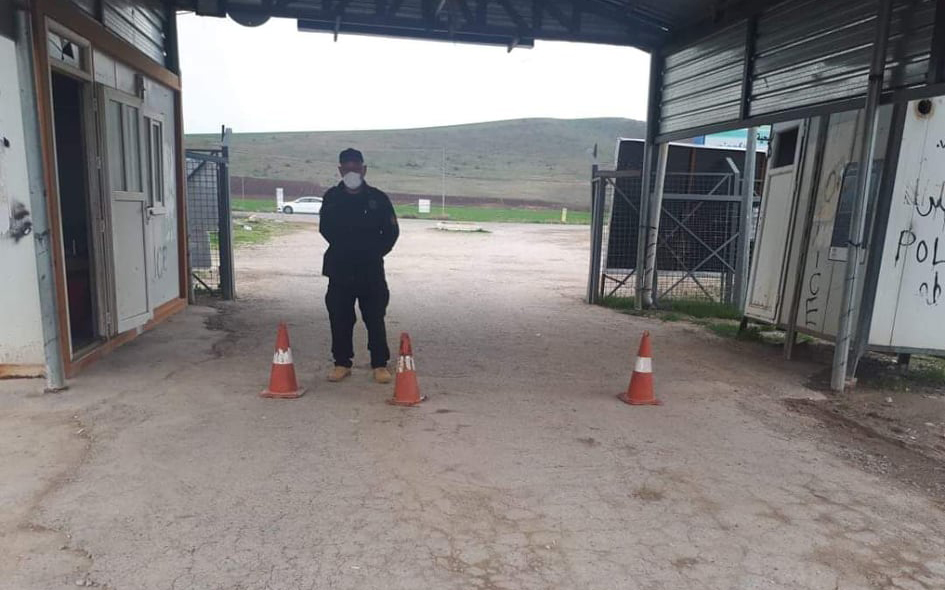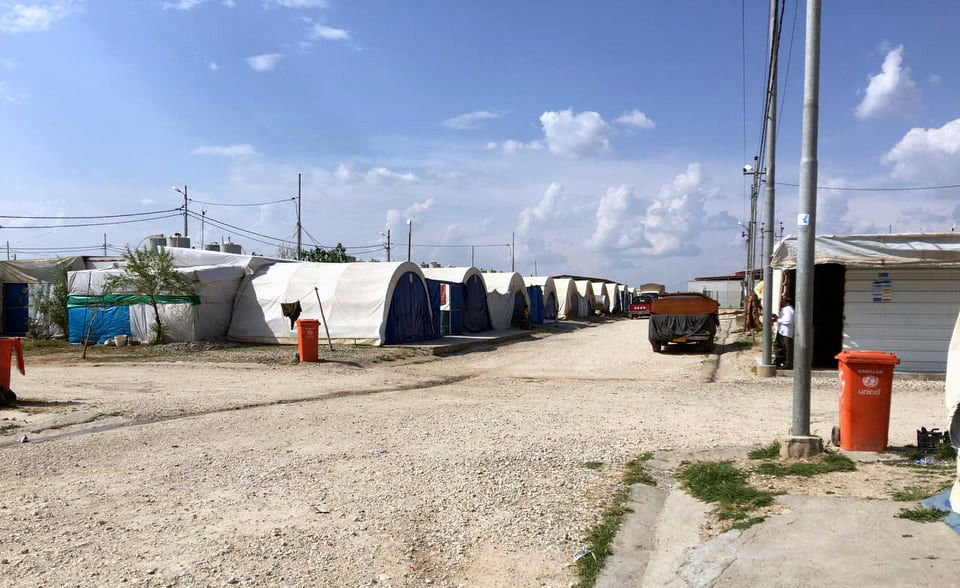Coronavirus outbreak has made life more challenging for the Internally Displaced Persons (IDPs) in Iraq. Hundreds of thousands have remained in their tents for nearly two months without enough food rations and financial aid; this is despite of the fact they are unable to leave and work outside the camps like before.
The main source of income for Rasho Chuko, a father of 10 children, was a daily wage as a worker and the financial aid he received from the humanitarian organizations. However, the coronavirus lockdown vanished such two sources of money.
“We are imprisoned and cannot go out, we have remained jobless while working was used to be our primary source of living.”
He said he is mainly concerned about his children, adding that, “I have ten children and do not know how to make a living, we are not snakes to eat the soil.”
I have ten children and do not know how to make a living
Rasho Chuko, who is from Girozer in Sinajr and has lived in Sharya camp in Duhok for five years, said that he hasn’t received their portion of rice, sugar, and cooking oil for over two months. They have only received flour, which is unfit for eating.
The IDPs camps across the country have been placed under a curfew to stop IDPs’ interaction with outside, aiming at preventing the spread of the coronavirus in the camps, according to the Iraqi Ministry of Displacement and Migration decision.
Khalaf Ilyas, media officer at Bersiv IDPs camp in Duhok, said, “movement is banned between the camps, and the IDPs are disallowed to leave the camps.”
Authorities shutdown many working places in the camps, such as barbershops, cafeterias, and dessert shops.
Nasrian Ibrahim Amman, an IDP who lives in Qadyaya camp in Zakho district, Duhok province, opened a dessert store with her friends, however she made zero money since the enforcement of the curfew.
“Before the enforcement of the curfew, we sold cakes and desserts worth of one million Iraqi Dinars (USD830) per month, which was the only source of our income, that I had to provide as the oldest girl in the family,” Amman said.
I had to provide as the oldest girl in the family
She has also asked for aid from the organizations.
Duhok, IPD camps are under lockdown amid the outbreaks of coronavirus, March 2020. Photo: KirkukNow
There are still 86 camps, among those 184 camps that were already built to accommodate IDPs with the advance of the militants of the self-claimed Islamic State (IS) across Iraq, including the Kurdistan Region. Eighty-six camps still house thousands of families, according to the statistics of the Iraqi ministry of Displacement and Migration.
Khalid Abdulkarim, the head of the office of the Ministry of Displacement and Migration in Nineveh, said in statement that the lockdown of the camps is temporary to protect people’s health.
A significant number of the IDPs neither receive financial support nor food supplies from the aid organizations, while they lack financial aid and face food shortages; this is at a time they are unable to leave the camps and work for living.
Rasho Chuko told KirkukNow that, every IDP used to receive 11 thousand Iraqi Dinars (USD 10) every two months from a company contracted by the World Food Program (WFP), but they do not receive the aid anymore.
“We at least were able to purchase some goods with that amount; we currently don’t have that. Our living condition is getting worse day by day. If the situation continues like that, a catastrophe will probably happen,” he added.
Meanwhile, the Iraqi Ministry of Displacement and Migration has established a Crisis Cell to provide the IDPs with basic food rations and other supplies.
Ismail Mohammed, the deputy governor of Duhok for IDPs affairs, said that, “we are aware of such problems, we have talked to the WFP and the aid distributor company so that we together find a solution to deliver the financial aid to the IDPs.”
The number of people officially identified as infected with coronavirus in Iraq is more than one thousand and 500 cases. The partial coronavirus lockdown continues nationwide; however, so far no coronavirus case has been recorded in the IDP.
We neither work nor do we receive financial support from the organizations to buy food and other basic needs
Sahr Qwlw, who lives in Khanki camp in Duhok, used to work before the spread of coronavirus and earned 15 to 20 thousand Iraqi Dinars per day. “Now, we neither work nor do we receive financial support from the organizations to buy food and other basic needs.”

Duhok, an IDP camp door is closed March 2020. Photo: KirkukNow
Hundreds of IDPs who used to work outside the camps and in the other Iraq provinces have recently reunited with their families after nearly two months of national lockdown.
The United Nations High Commissioner for Refugee (UNHCR) have continued to support the IDPs through its local partner organizations. Rawaj Haji, the spokesperson of the Barzani Charity Foundation (BCF), said, “due to the coronavirus outbreak, the (UNHCR) in cooperation with our foundation provides each IDP and Refugee family with USD200.”
There are more than 787 thousand IDPs only in the Iraqi Kurdistan Region. The IDPs are of different ethnic and religious minorities and backgrounds; 208 thousand of them live in 28 camps, which costs Kurdistan Regional Government (KRG) two million and USD 700 thousand per day, according to the Joint Crisis Center, the KRG Ministry of Interior.
Six million Iraqis, an equivalent to 15 percent of the country’s population, were displaced between Mid-2014 to 2017 due to the ISIS advance and retaking those areas by the Iraqi forces. Many of those IDPs still live in camps to the lack of basic services and unstable security situation in their home towns.





